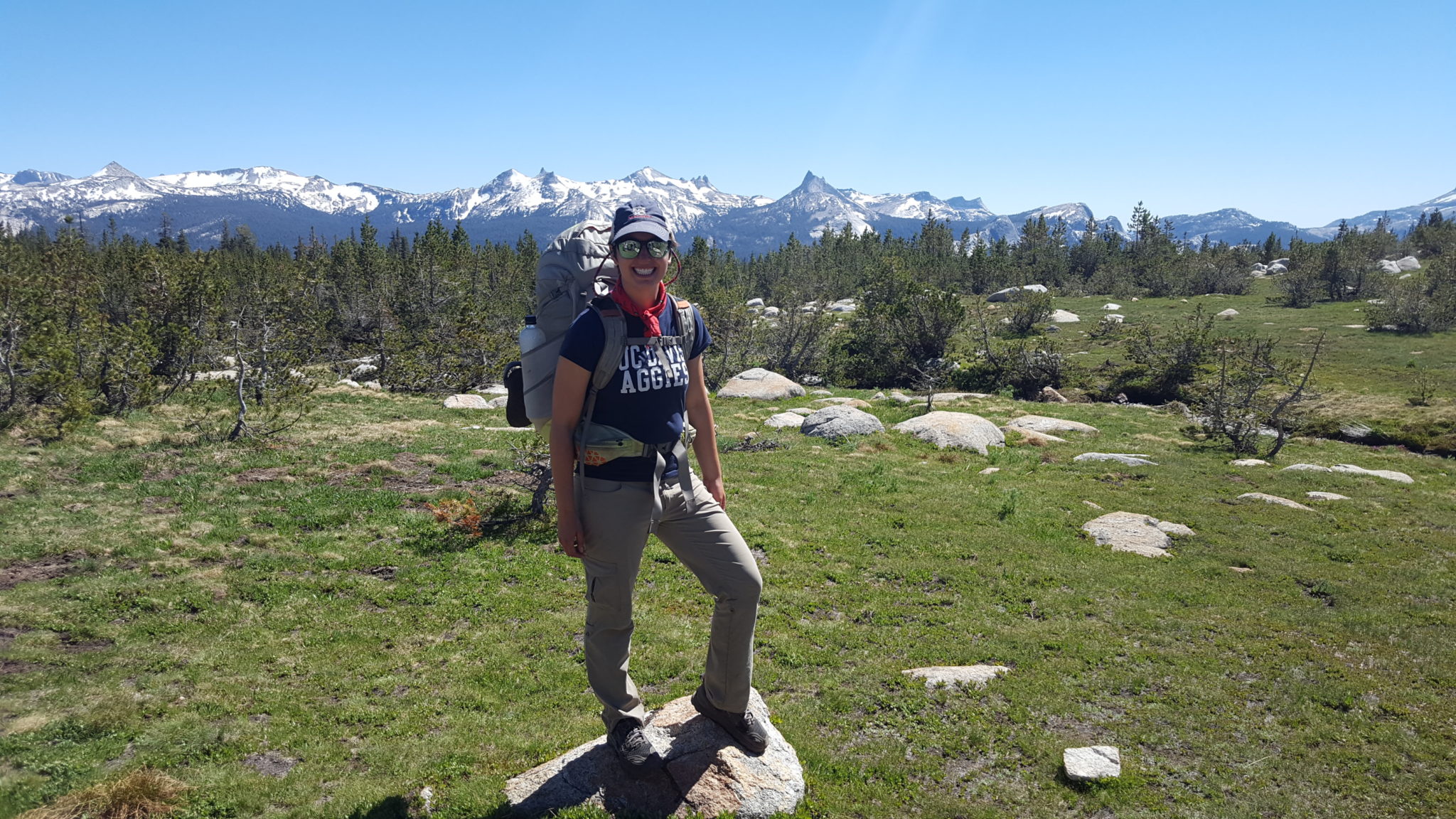
After graduating from University of California Davis in 2015, Emily Iskin is still finding out what her passions are and sometimes changing her mind in the process.
Coming to Colorado State University in 2018 for a master’s degree in Fluvial Geomorphology and currently enrolled in a Ph.D. program with the Department of Geosciences in the Warner College of Natural Resources, Iskin’s relationship with research and self-identity is stronger than ever.
Iskin and CSU Distinguished Professor Ellen Wohl are analyzing 24 different river pathways across the United States in order to expand upon natural floodplain heterogeneity research and examine river characteristics in biomes using field techniques and remote sensing. Their paper, “Damming the wood falls” was published in December of 2021.
“I’ve enjoyed watching Emily grow as a scientist during her time in the graduate program here,” Wohl said. “When doing field-based research, she now observes and makes inferences in a manner that reflects a more integrative understanding of river ecosystems.”
What brought you to Colorado State University and WCNR?
I grew up in Northern California and I got my B.S. in biological systems engineering. My goal was to incorporate more science into the engineering curriculum. Throughout my time there, I did a bunch of different internships related to water during the summer. I didn’t think I was going to like it, but I ended up loving it. And I thought, ‘Wow. I’ve never really considered water as my career path.’ That really started me on the track I’m on now.
I’ve always gravitated towards science. I think I was just fighting it, but I knew that’s what I wanted to do. I’m grateful for my engineering background, but I love where I am now and where this might take me. I came to CSU to work with Ellen specifically, knowing that I wanted to work in freshwater and in natural systems. We had a lot of the same values about how science is done, which brought us together quite easily.
What about this field of research appealed to you?
Fluvial geomorphology is the study of how rivers shape landscapes. For me, I’ve always been interested in science and features of the earth that I can go out and experience myself. I’m very tactile; I need to go out there and experience it to really make that knowledge my own.
I love that rivers span the globe. They can be studied in geologic time, but they’re also extremely relevant today. Rivers impact everybody whether or not we realize it. I try to be mindful of the fact that these features of our landscapes affect everybody. So, to me, thinking about how rivers are connected to our daily lives and what the right balance looks like is very important.
What has been the most rewarding thing about your research and your post-undergrad experience?
I really enjoy mentoring students. It has just been really cool to mentor young women who remind me of myself. Undergrad can be such a tumultuous time, and you may think you’re supposed know what you want to do, but you don’t. So having the opportunity to pass all the knowledge that I wish someone had told me is incredibly rewarding. I have also always been drawn to art. This past year I’ve been able to dive into it and explore science communications even more.
How has working with researcher Ellen Wohl shaped your experience?
While I was applying to grad school, three different people mentioned her by name and pointed me in her direction, so it’s been so great to collaborate with her. I don’t know how she does it. Without you knowing it, she will set you up with the skills you’ll need later. She’s also such a great mentor. Her style changes for each student, and I thrive with regular verbal communication. She’s here a lot on campus, which is huge.
What piece of advice would you share with current undergraduate and graduate students?
Working before graduate school was the right path for me. With that in mind, I think everybody’s path is different and that is what makes it right for them. If you feel called to something, you should do it and just try a lot of different things. You don’t have to know exactly what you want to do or what you want to study. Be willing to take some risks and change your mind a few times because odds are, it will happen anyway.